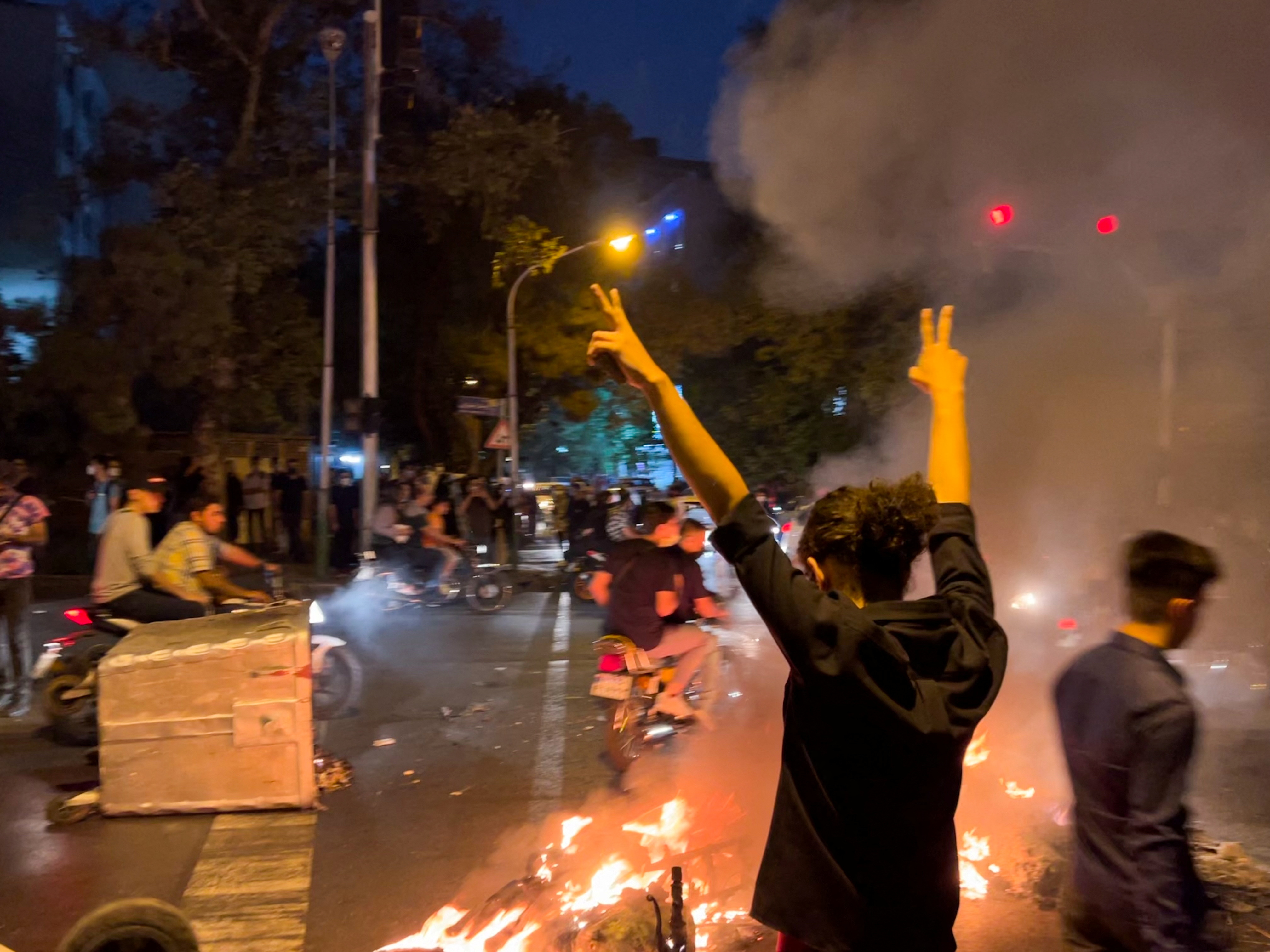Almost 12,500 people have been arrested and nearly 250 killed since the street protests began in Iran, according to a prominent human rights group, HRANA.
Maj Gen Hossein Salami, said security forces were close to snuffing out the remaining protests. He said: “Sedition is going through its last moments.”
But protesters have insisted that defiance was continuing. One group pointed to truck drivers joining oil refinery workers on rallies, as well as demonstrations among Baloch people in Zahedan. As many as 200 refinery workers have been arrested since their protests started a fortnight ago.
The Writers Union of Iran issued a statement about the crackdown, saying: “Repression of people who protested with empty hands has been a daily occurrence in the last 40 years. But what happened to children and prisoners last week is one of the blackest pages in the record of the current government.”
The union added that “the attack of security forces on schools and prisons and the beating and killing of children and prisoners is a tragedy beyond the killing of protesters in the streets. In this stage of repression, the government, as always, denies the reality, spreads rumours, and distorts public opinion in order to thwart the efforts of people’s organisations and groups to express the truth”.
The protests were sparked by the death of Mahsa Amini, the 22-year-old Kurdish woman who collapsed while in custody of the morality police and later died. Lawyers for Amini in a fresh statement disputed the official account that she collapsed due to a pre-existing neurological condition.
Iranian human rights groups say journalists are being targeted, especially if they report on individuals being detained. Reporters Without Borders says there are more than 30 journalists in jail, forcing censorship across many publications.
The arrest number of 12,450 must be an estimate, partly because the government is unlikely to provide accurate figures, and the internet remains heavily restricted. Iranians who have left the country recently say the scale of the arrest is much higher than the west had presumed.
Read more at the Guardian.

